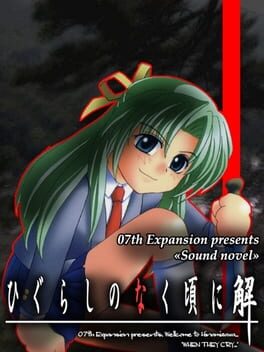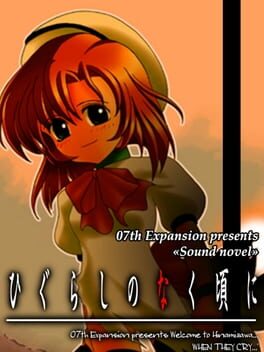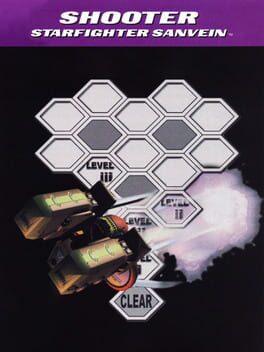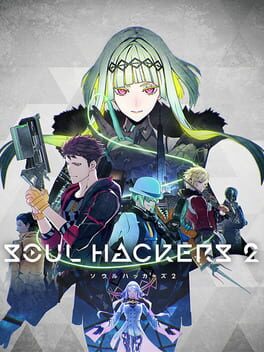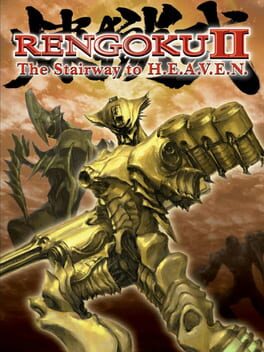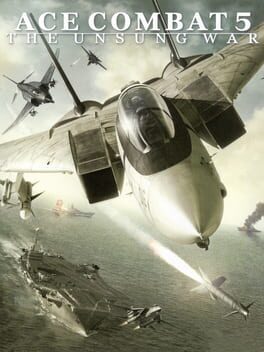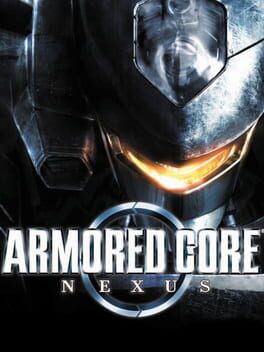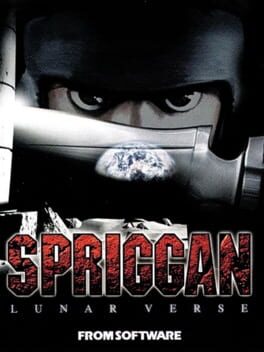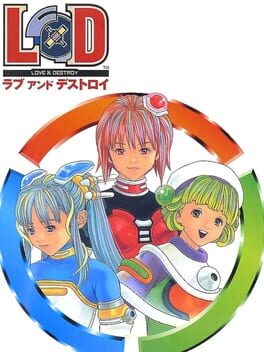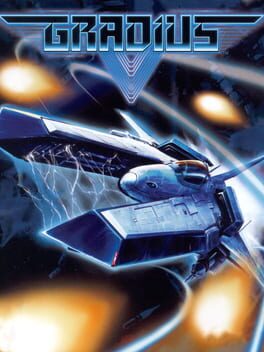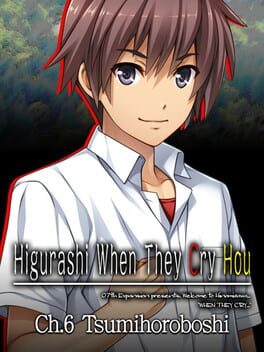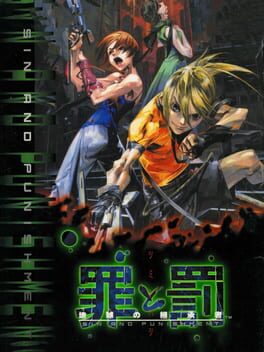Ryuke
94 Reviews liked by Ryuke
(9.5) terminei a menos de 3 horas atrás e senti q levei uma porrada de soco inglês no meio do estomâgo, parecido com oq eu tive em Tatarigoshi, mas lá só estava em completo choque, enquanto aq só estou me sentindo "é.... td é uma merda msm" MAS com ainda com uma pontinha de esperança das coisas melhorarem... e o fato de me sentir assim n só com esse arco, mas tbm com o estado atual da minha vida é extremamente coveniente de isso ter me acertado tão forte.
Meakashi é devastador e melancólico, porém belo, assim como a história de Shion Sonozaki (ou da Mion? Ou de Ambas?... leia pra descobrir)
o motivo de amar tanto a escrita do Ryukishi, é q além de super cativante, gostoso de se ler e bem escrito, ele também entende o q é ser humano e as emoções humanas.
Higurashi Kai mal começou e seu primeiro arco ja é meu segundo fav da duologia, meu mano Ryukishi está cozinhando.
Meakashi é devastador e melancólico, porém belo, assim como a história de Shion Sonozaki (ou da Mion? Ou de Ambas?... leia pra descobrir)
o motivo de amar tanto a escrita do Ryukishi, é q além de super cativante, gostoso de se ler e bem escrito, ele também entende o q é ser humano e as emoções humanas.
Higurashi Kai mal começou e seu primeiro arco ja é meu segundo fav da duologia, meu mano Ryukishi está cozinhando.
(6.5) amo a relação da Rika com o Arasaka e os dois ultimos caps, num geral um extra daora. O problema é q o pacing é bem meh em grande parte do tempo (o subplot do neto do politico la é mt fodase, é só por lore msm) e vim aq logo dps do absurdo q foi Tatarigoshi, n foi uma experiencia tao boa assim. Mas ta longe de ser ruim, é bem bacana e como disse os dois ultimos caps faz q o final do primeiro jogo valeu a pena. Agr bora pro Kai!
Obs: igual Tsumihiboroshi com Onikakushi, Himatsu melhorou MUITO com o Minagoroshi... MAS MUITO. O arco que mais cresceu pra mim. 9 se fosse dar uma nota
Obs: igual Tsumihiboroshi com Onikakushi, Himatsu melhorou MUITO com o Minagoroshi... MAS MUITO. O arco que mais cresceu pra mim. 9 se fosse dar uma nota
Sanvein
2000
Soul Hackers 2
2022
Armored Core: Nexus
2004
Love & Destroy
1999
Gradius V
2004
Permit me a formalist critique: Gradius as a series starts making more sense when you realize it’s a game where you can have up to seven hit points. That’s at least when it started making sense to me, and it started finally clicking here at Gradius V. You start to realize that collecting those capsules is less like grabbing power ups and more like discrete meter management. Many games give you bombs as a last resort, but Gradius gives you something a lot more dynamic. Upon collecting enough to unlock a force field, which absorbs three hits, you can collect a few more and hover your meter over the force field slot, and then activate it again when you lose your shield, thus giving you a grand total of 7 hits before you need to collect more capsules. The result of this, when it works, is this beautiful little tension of trying to evade enough bullets until you can manage to fill your meter. It’s wonderfully tense.
Gradius has always had this cool little power up system, and it’s evolved and changed a lot over the years. You can opt for different configurations and weapons, and even replace that force field with other things, like shrinking or a bomb. Powering up is a series of choices. Now, there are some issues with this design. When you eventually die (which will almost certainly happen), you lose all your power ups (though here you can recollect your allied options) and start at square one. This can lead to a pretty immediate spiral of repeated deaths, and can be really frustrating. But even if it didn’t it would still commit the cardinal action game sin of punishing players with a bad time. You move so slow at the start and it really just feels bad until you get a few speed upgrades. Those choices can feel less like exciting crossroads and more like burdensome obligations. This also has the issue of severely punishing players who are struggling, resulting in a feedback loop of demises. And with a game as difficult as this, that’s going to push people away.
Gradius as a series has also always had this strange penchant for unpredictable and chaotic level design, as well as claustrophobic spaces, and this is definitely the case with Gradius V. This is not really in vogue for modern shmup design. I think modern shmups tend to lean towards a ballet of evasion. Gradius has a bit of that, but it also has these wacky maze elements of navigating corridors. It feels very old school, but I don’t think this is a bad thing. In fact, there are a few moments here where I think it works beautifully. (There’s this weird walker boss near the end of the game that I think is genuinely sublime.) The options function as a way of extending your attack range without endangering your ship, and their different configurations provide different ways doing so with very different advantages. Something is working here. At the same time, there are some moments in Gradius V where I felt like the game expected me to be psychic. While these obstacles can require snappy responses, some obstacles are just too unpredictable to feel fair. Weirder still, the game often feels like it expects you to memorize its levels due to obstacles that are unavoidable if you don’t know when and where they’re going to appear. It’s a weird combo that doesn’t always work. But sometimes it works. Sometimes scraping through its challenges is as thrilling as it is frantic. And that power up system, and the 7 hit points, enable these levels to feel like gauntlets. I just wish there were less moments where failure felt inevitable.
I’ve always liked Gradius and Parodius, but I’ve never really been sure why. I could never beat the first level of the first game (those volcanoes suck!) and the theming is generally pretty dull (well, not Parodius). It might just be a nostalgia for having played some of them in junior high. Who could say? But now, coming back to them and addressing them critically, there is a unique approach to shmupcraft here. When these games work, they can be exciting and tense, not in spite of their corridors and chaotic obstacles, but because of them, as they work in tandem with the upgrade system that defined Gradius from the get-go. If only it were easier to slip into those moments.
Gradius has always had this cool little power up system, and it’s evolved and changed a lot over the years. You can opt for different configurations and weapons, and even replace that force field with other things, like shrinking or a bomb. Powering up is a series of choices. Now, there are some issues with this design. When you eventually die (which will almost certainly happen), you lose all your power ups (though here you can recollect your allied options) and start at square one. This can lead to a pretty immediate spiral of repeated deaths, and can be really frustrating. But even if it didn’t it would still commit the cardinal action game sin of punishing players with a bad time. You move so slow at the start and it really just feels bad until you get a few speed upgrades. Those choices can feel less like exciting crossroads and more like burdensome obligations. This also has the issue of severely punishing players who are struggling, resulting in a feedback loop of demises. And with a game as difficult as this, that’s going to push people away.
Gradius as a series has also always had this strange penchant for unpredictable and chaotic level design, as well as claustrophobic spaces, and this is definitely the case with Gradius V. This is not really in vogue for modern shmup design. I think modern shmups tend to lean towards a ballet of evasion. Gradius has a bit of that, but it also has these wacky maze elements of navigating corridors. It feels very old school, but I don’t think this is a bad thing. In fact, there are a few moments here where I think it works beautifully. (There’s this weird walker boss near the end of the game that I think is genuinely sublime.) The options function as a way of extending your attack range without endangering your ship, and their different configurations provide different ways doing so with very different advantages. Something is working here. At the same time, there are some moments in Gradius V where I felt like the game expected me to be psychic. While these obstacles can require snappy responses, some obstacles are just too unpredictable to feel fair. Weirder still, the game often feels like it expects you to memorize its levels due to obstacles that are unavoidable if you don’t know when and where they’re going to appear. It’s a weird combo that doesn’t always work. But sometimes it works. Sometimes scraping through its challenges is as thrilling as it is frantic. And that power up system, and the 7 hit points, enable these levels to feel like gauntlets. I just wish there were less moments where failure felt inevitable.
I’ve always liked Gradius and Parodius, but I’ve never really been sure why. I could never beat the first level of the first game (those volcanoes suck!) and the theming is generally pretty dull (well, not Parodius). It might just be a nostalgia for having played some of them in junior high. Who could say? But now, coming back to them and addressing them critically, there is a unique approach to shmupcraft here. When these games work, they can be exciting and tense, not in spite of their corridors and chaotic obstacles, but because of them, as they work in tandem with the upgrade system that defined Gradius from the get-go. If only it were easier to slip into those moments.
Demon's Souls
2009
Playing this the very last, it's inevitable to see how it has been picked apart by every Souls after this. Dark Souls 1 took the important stuff, Dark Souls 3 the cosmetics.
Breaking up the game into levels like this may not feel as "organic" to lot of people who prefered a long, unique world (maybe the same people who's favourite thing about movies is when a long one-take happens, for the sake of it). I think they can be equally gimmicky if taken out the context. DS1's world's interconnection served to demonstrate how much the fabric of reality had been torn apart after generations of nothing or no one holding it together. In Demon's Souls, the world is at this very moment being threaten by the destruction of reality in the hands of the invisible fog, and so what little remains of the world can be preserved in levels, the only way to go from one place to another without being trapped by the fog. Even then, the fog can still affect this places (hence having to "traverse the fog", a classical element of the franchise that took meaning in here).
This breaking up into levels gives it much more freedom, as you can do them in the order you prefer. Also, the levels are much more enjoyable than in any other Souls game, they have more ups and downs, there are wider landmasses or narrower pathways, the architecture feels more expansive and broken. DS1 may have Blight Town's poisonous deeps, which are a pain in the ass, but Demon's Souls has a poisonous landmass where, if you keep still, dozens of creatures will try to surround you, creating a sense of "lone person in a stranded tiny island, having to deal with the ocean's menace". It is the most varied, without having to resort to hundred shortcuts and a thousand closed doors that read "ok, will be unlocked later".
The bosses are also much more interesting, they don't rely so much in having to learn patterns, but in having to read the room (literally!). I think there's no boss fight that doesn't force you to internalize the area you're placed in, sometimes turning that into an advantage. It's so different from the countless boss fights encountered in a round colosseum-style area.
Even then, my favourite will still be DS1, Demon's Souls as a closed second, due to how many similarities they share.This corrupted land may have lost the punch it had when it came out, after so many iterations on the same concepts, but it's wild to see the very first primordial being as also the most creative one. After DS1, it appears the rest haven't learned much.
Breaking up the game into levels like this may not feel as "organic" to lot of people who prefered a long, unique world (maybe the same people who's favourite thing about movies is when a long one-take happens, for the sake of it). I think they can be equally gimmicky if taken out the context. DS1's world's interconnection served to demonstrate how much the fabric of reality had been torn apart after generations of nothing or no one holding it together. In Demon's Souls, the world is at this very moment being threaten by the destruction of reality in the hands of the invisible fog, and so what little remains of the world can be preserved in levels, the only way to go from one place to another without being trapped by the fog. Even then, the fog can still affect this places (hence having to "traverse the fog", a classical element of the franchise that took meaning in here).
This breaking up into levels gives it much more freedom, as you can do them in the order you prefer. Also, the levels are much more enjoyable than in any other Souls game, they have more ups and downs, there are wider landmasses or narrower pathways, the architecture feels more expansive and broken. DS1 may have Blight Town's poisonous deeps, which are a pain in the ass, but Demon's Souls has a poisonous landmass where, if you keep still, dozens of creatures will try to surround you, creating a sense of "lone person in a stranded tiny island, having to deal with the ocean's menace". It is the most varied, without having to resort to hundred shortcuts and a thousand closed doors that read "ok, will be unlocked later".
The bosses are also much more interesting, they don't rely so much in having to learn patterns, but in having to read the room (literally!). I think there's no boss fight that doesn't force you to internalize the area you're placed in, sometimes turning that into an advantage. It's so different from the countless boss fights encountered in a round colosseum-style area.
Even then, my favourite will still be DS1, Demon's Souls as a closed second, due to how many similarities they share.This corrupted land may have lost the punch it had when it came out, after so many iterations on the same concepts, but it's wild to see the very first primordial being as also the most creative one. After DS1, it appears the rest haven't learned much.
